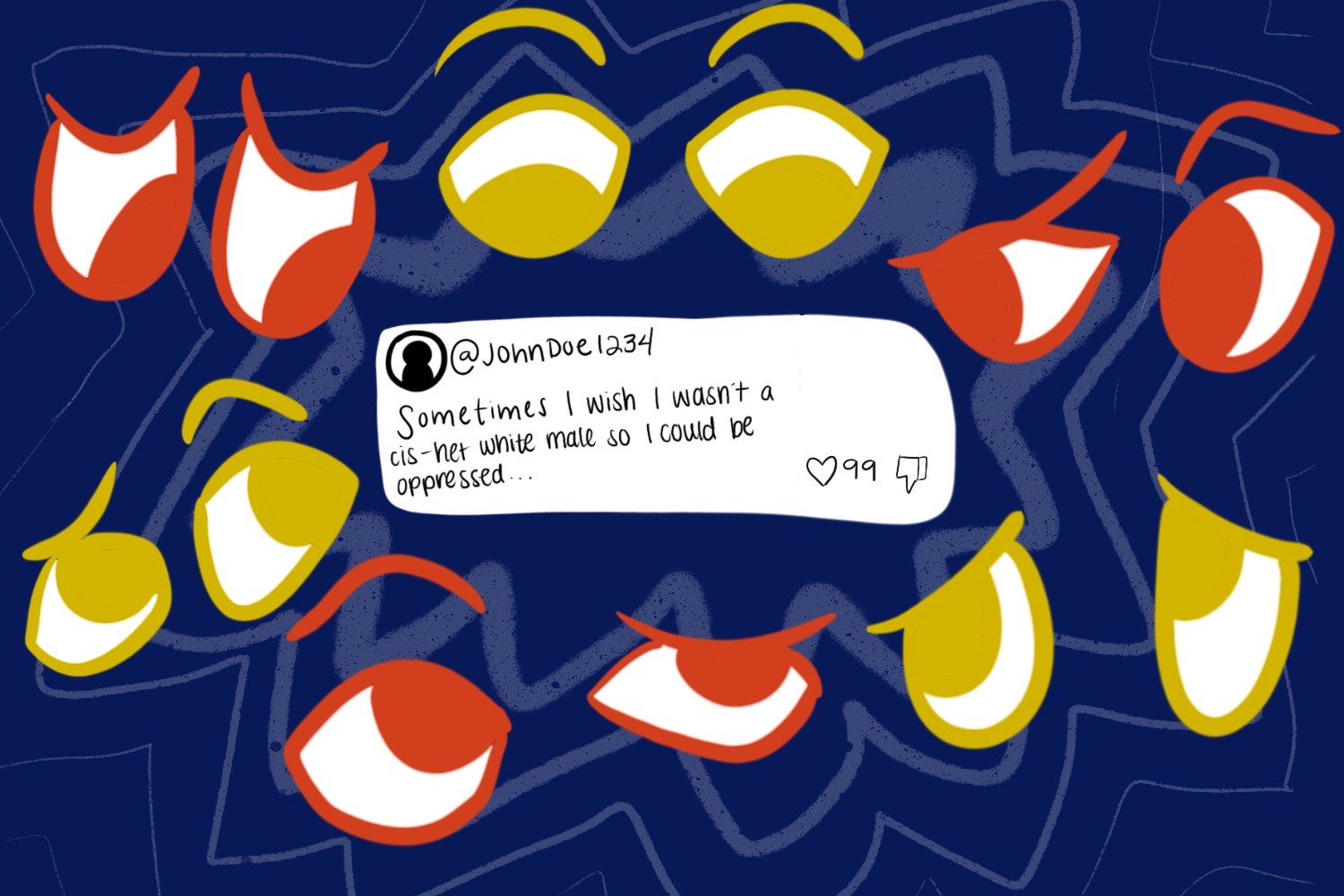Co-Opting Oppression: A call to action to learn more
My name is Tushar Asthana, a junior data science student at UVM. I am originally from the subcontinent of India and I’m a first generation immigrant. I’ve lived in Vermont for 13 years, which allows me to have a unique perspective on the issues that stem from racism. It also lets me serve as a spokesperson. I can relate aspects of my life to other Black, Indigenous, People of Color that have similar experiences to mine. This column aims to amplify their voices on UVM’s campus.
February 2, 2023
On this campus, as a student of color, it feels like being oppressed has almost started to become a celebrated identity facet by our white counterparts. They seem to need to put themselves down, blaming any daily action that affects them on oppression, to feel as if they can relate to the challenges POCs feel.
Racial oppression is a phenomenon that white Americans do not experience.
An example of a marginalized group would be the LGBTQ+ community. I, as a straight person, am not part of this community, nor do I have any right to speak on their behalf.
A byproduct of talking about oppression a lot is that people are starting to feel left out. It’s a crowd mentality—when so many people start speaking out about something, others inevitably feel left out of it.
To understand oppression, we have to understand what discrimination and prejudice mean.
Prejudice is an internal bias, the ones that we are simply not aware of, the ones that we are raised with, according to an OpenStax sociology introduction. Everyone is capable of being prejudiced.
Discrimination is the externalization of prejudice. It manifests itself when we act on our internal prejudices. Anyone can be discriminated against, whether it be on the basis of looks, cultural background, or another identity facet, according to OpenStax.
I am an Indian man, so I will relate examples of discrimination to being Indian, and furthermore, being a brown person in America. These are not specifically things that are oppressive because I am Indian, but because of my color.
A negative prejudice is to assume a brown male with facial hair who speaks a different language is someone to fear, someone to be suspicious of. Moving away from them or asking to be moved to a different airplane seat is an example of acting on those prejudices culminating in discrimination.
Oppression is systemic when discrimination is encouraged by institutions around us, like by a government or other societal structures. An example of this would be the Muslim ban that was instituted by former President Donald Trump, and furthermore approved by the government.
Somehow, I keep getting stopped for a “random” TSA check every time I fly internationally.
Actions like that reinforce prejudice, whether one wants them to or not. A government banned an entire demographic from entering the country, and to say that not a single American looked at their Muslim friends differently would be a blatant lie.
Furthermore, because white Americans do not see a difference in color when it comes to categorizing minorities, all brown people were under suspicion during that time.
Oppression is not your professor telling you they cannot extend your deadline, it’s not the fact that UVM doesn’t provide you with first-class dining nor is it almost any of the things that people like to complain about.
White Americans cannot be oppressed when it comes to race. As a predominantly white campus, this is extremely important to understand. Being the majority since the colonization of this country, white Americans have never experienced racial oppression, because they have never been a racial minority or marginalized group.
White people do not have to worry about shaving to look less threatening at airports, they do not have to make sure they don’t step out looking like a slob and they will never experience the feel of a room that dislikes them because of the way they look.
White people cannot co-opt oppression. The ability to understand where your personal biases lie, and how they manifest into your life is one of the greatest social challenges of today’s world.
I highly encourage anyone reading this column to think about the identity groups they are a part of, and reflect on whether they are speaking on things they do not truly experience.
